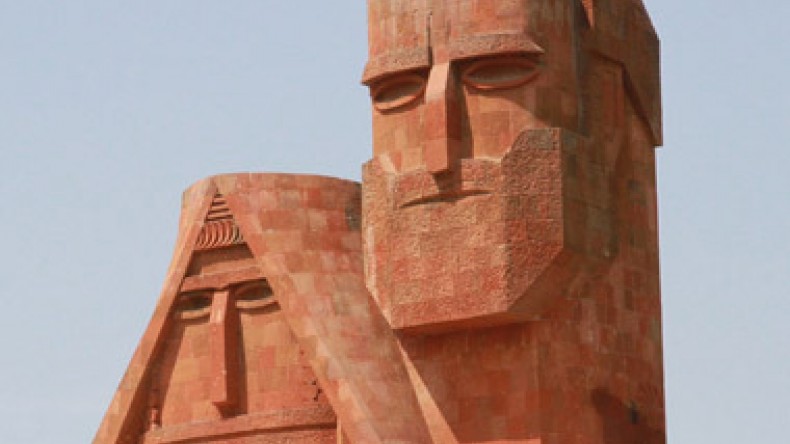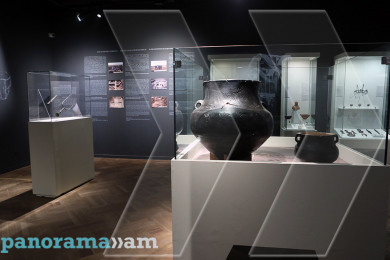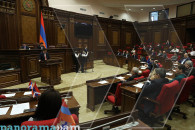
Canadian publication: Republic of Nagorno Karabakh won Azerbaijan in war for independence
Henry Srebrnik, a political science professor at the University of Prince Edward Island in Canada, has published an article on the website of the Canadian daily newspaper “Journal Pioneer” regarding the relations of Azerbaijan with Armenia, Iran and Israel. The article notes that 4,400 square kilometre Nagorno-Karabakh Autonomous Oblast, with more than three-quarters of ethnic Armenian population, was incorporated into Azerbaijan only at the period of its sovietisation. As the USSR disintegrated, the parliament of Azerbaijan in 1991 abolished the autonomous status of the region, while the majority Armenian population declared its independence. This resulted in a war between the between the majority ethnic Armenians of Nagorno-Karabakh, backed by Armenia, and Azerbaijan.
By 1994, when a cease-fire went into effect, the new de facto republic of Nagorno-Karabakh had proved victorious. Today Armenians control all of the territory, which includes some 140,000 residents, 95 per cent of which comprise ethnic Armenians. However, Baku has not reconciled itself to this situation and refuses to accept the independence of Nagorno-Karabakh, Srebrnik writes.
As for the Irano-Azerbaijani relations, that commenced with Iran recognizing the independence of Azerbaijan in 1992, they “quickly turned sour,” as the author puts it. The reason was that Azerbaijan, with 85% Shia population, didn’t justify the Shia-majority Iran’s expectations, which planned to spread its Islamic Revolution. In its turn, Azerbaijan started to promote the idea of “Greater Azerbaijan,” which would unite the country with the 16 million Azeris in northwest Iran. In February 2012, a member of the ruling New Azerbaijan Party asked the government to change the country’s name to “North Azerbaijan,” implicitly suggesting that the Azeris who live in northern Iran are in need of liberation.
The article points out how Azerbaijan openly accused Iran of interfering in its domestic affairs by supporting the Islamic Party of Azerbaijan (AIP), a pro-Iranian and religious Shiite opposition party banned by Baku. The leader of the AIP, Movsum Samadov, called for the overthrow of President Ilham Aliyev’s government and was sentenced to 12 years in jail in 2011. The next year 22 Azerbaijanis charged with spying for Iran were given lengthy prison sentences.
At the root of the bilateral strategic and economic relations between Azerbaijan and Israel, which is the second largest customer for Azeri oil, Srebrnik observes the common goal of containing Iranian influence.
To describe the character of the relations between these countries, the author cites Ilham Aliyev’s words, who said that his country’s relationship with the Jewish state resembles an iceberg, as “nine-tenths of it is below the surface.” This phrase was quoted in a memo sent to Washington by Donald Lu, the deputy chief of mission of the U.S. embassy in Baku, in 2009.
Srebrnik brings the example of a $1.6 billion defence deal, signed between Azerbaijan and Israel in February, 2012. The deal included air defense systems, intelligence hardware, and drones.
A month later the magazine Foreign Policy reported that Israel had been granted access to air bases in Azerbaijan on Iran's northern border to serve Israel in a possible strike on Iran. Access to such airfields would mean that Israeli fighter-bombers would not have to refuel mid-flight.
Newsfeed
Videos






























